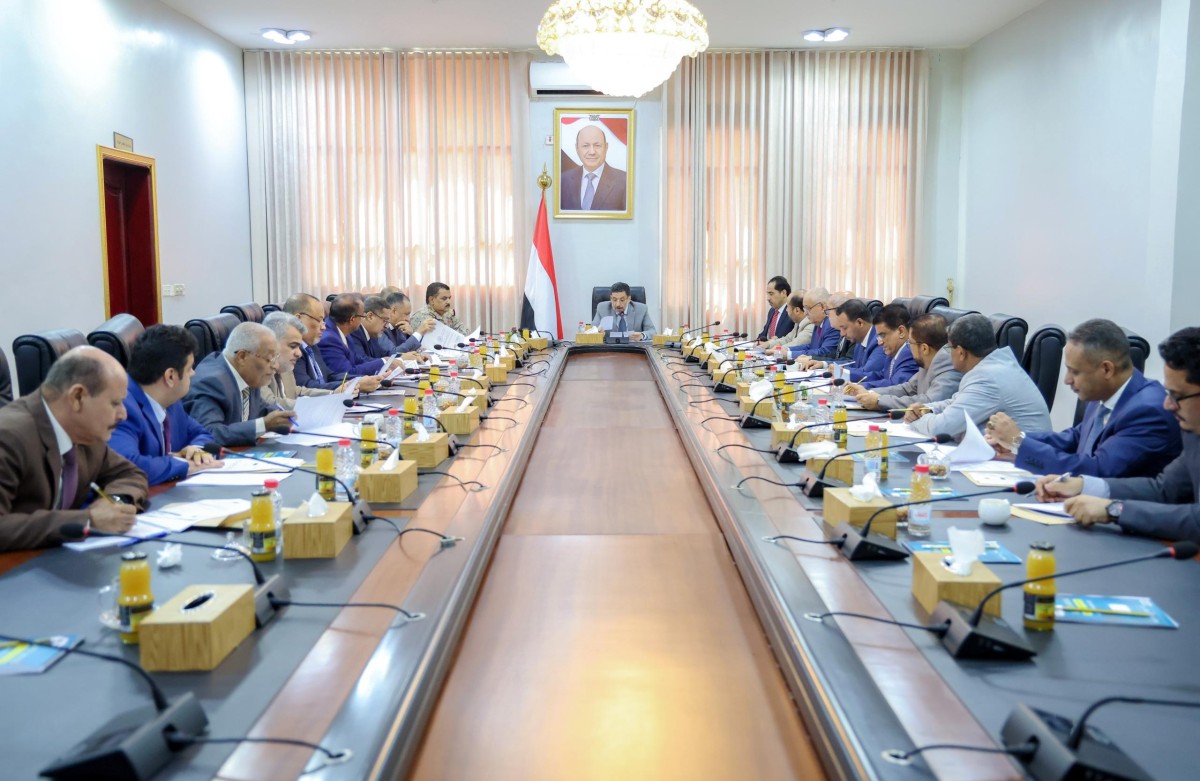The Council of Ministers discusses the Aden electricity and water crisis and economic developments in an extraordinary meeting


The Yemeni Council of Ministers held an extraordinary meeting, today, Thursday, in the capital, Aden, headed by Prime Minister Dr. Ahmed Awad bin Mubarak, to discuss economic, financial and service developments, with a focus on challenges related to electricity and exchange rate fluctuations.
The Council discussed the draft economic rescue plan, which was reviewed and enriched with discussions and observations to develop and harmonize it with ongoing government programs and policies in the field of reforms, in preparation for its approval and submission to the Presidential Leadership Council.
The Council decided to form a ministerial committee headed by the Minister of Finance and membership of the Ministers of Planning and International Cooperation, Industry and Trade, Electricity and Energy, Transport, Civil Service and Insurance, Oil and Minerals, in addition to representatives of the Central Bank of Yemen, the General Secretariat of the Council of Ministers, and the Prime Minister’s Office, to study The plan, assimilating the comments submitted on it, and re-presenting it to the Council within two weeks.
The Council's discussions focused on the challenges resulting from the Houthi terrorist militia's attacks on oil installations and international shipping lines, and the need to support Yemen's development partners.
The Council also reviewed reports from the relevant ministers on the problems of supplying fuel to power stations in Aden, the efforts made to overcome them, and urgent measures to ensure the stability of electricity service.
It was emphasized to provide emergency quantities to power stations and work to secure additional quantities to ensure continuity of service. The Ministers of Water and Electricity were also directed to coordinate to secure the needs of operating water wells and avoid stopping the water supply to citizens in Aden.
The Council also discussed the results of campaigns to control illegal exchange shops and currency speculators in Aden and the liberated governorates, and stressed the continuation of campaigns in coordination between the security authorities and the competent judicial authorities.